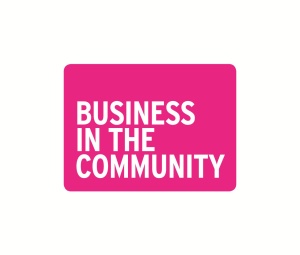
Louise Aston, Wellbeing Director, Business in the Community on a new report which calls for better support for line managers on employee mental wellbeing and for businesses to introduce Mental Health First Aid training for line managers.
Today (4th February), Business in the Community’s wellbeing campaign publishes a new report calling on businesses to do more to support line managers in promoting mental wellbeing in the workplace.
The report, ‘Leading on mental wellbeing: transforming the role of line managers’, calls on all businesses to sign up to the Time to Change organisational pledge and to introduce Mental Health First Aid (MHFA) training for managers.
We want to shift perceptions about the crucial role of line managers in improving employee mental wellbeing and business productivity. We’re encouraging employers to enable line managers to improve their own and others’ employee wellbeing for the benefit of their peers, their organisation and society.
The report is being launched at a ‘Leading on Mental Wellbeing’ event hosted by Royal Mail, with speakers including Luciana Berger MP, Shadow Cabinet Minister for Mental Health; Moya Greene, CEO, Royal Mail Group; Peter Simpson, CEO, Anglian Water Group; Peter Cheese, CEO, CIPD; Poppy Jarman, CEO, Mental Health First Aid; and Paul Farmer CBE, CEO, Mind.
The launch coincides with Time to Talk Day, which highlights the importance of having open and regular conversations around mental health. This is significant as talking about mental health is exactly what we want line managers to do with their team members. After all, you can’t manage what you can’t talk about. However, many line managers lack confidence to discuss mental health issues with their team members. That’s why we need employers to embed cultural change throughout their organisations which gives line managers the support they need.
MHFA training, a licensed training product, can be accessed through qualified practitioners including Mental Health First Aid England, Mind and Maudsley Learning. Courses range from MHFA Lite, a three hour introductory course to a MHFA Standard two day training course. Business in the Community also offers MHFA training as part of our wellbeing membership offer – you can find out more about becoming a member of the campaign on our website.
Offering MHFA training is valuable for developing mental health literacy and one way of enabling managers to spot early warning signs of mental ill health and building confidence to signpost people to appropriate sources of support – and is particularly relevant when set against a rise in common conditions such as stress, anxiety and depression. Our aim is to make talking about mental health business as usual.
However, there is not a magic bullet, and wellbeing must be at the core of organisational culture. Business in the Community’s Workwell model provides a strategic framework for embedding wellbeing into any organisation and covers how employers can create an environment where employees can make informed, healthy choices. By improving support for employees, in alignment with the Workwell model, employers can benefit from increased productivity.
Line managers are increasingly squeezed with pressure from above and below, and more managers are experiencing stress-related ill-health. Long hours form a significant part of this, with three in five managers concerned how long hours impact their stress levels. Senior leaders must ensure managers have what they need to maintain their own wellbeing, as without this they will not be able to maintain the wellbeing of their team members.
The role of line managers is key to making talking about health the norm in the workplace. This transformation requires a significant commitment from senior leaders – but it’s vital if we’re going to prevent employees suffering in silence.
Below are our recommendations for employers wanting to create more open workplaces and support line managers’ role in this:
• Sign up to the Time to Change organisational pledge to tackle mental health stigma.
• Use the Workwell Model’s ‘Working Well’ module to position mental health as a boardroom issue, on a par with physical health.
• Communicate that mental wellbeing is key for productivity and maximising performance.
• Make employee wellbeing a core part of line manager job responsibilities, and provide line managers with the necessary time, resources and training.
• Recruit, promote and support line managers with excellent interpersonal skills, and/or cultivate these skills as part of their ongoing professional development.
• Support line managers to maintain their own wellbeing.
• Make Mental Health First Aid training available to line managers.
• Develop and promote clear referral or assistance pathways so line managers can take appropriate action to support employees.

